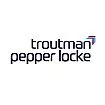On June 1, 2016, FERC issued First ECA Midstream LLC ("FECAM") a certificate of public convenience and necessity to operate an existing 16-mile, 4- to 16-inch-diameter pipeline as a jurisdictional interstate pipeline. Notably, FERC denied FECAM's request to file two negotiated rate agreements in lieu of an open access tariff, stating that an exception to FERC's policies favoring open access was not warranted where FECAM was operating a pipeline to transport gas for third parties and where shippers did not have contractual rights and long-standing arrangements already in place.
In its certificate application, FECAM explained that its pipeline, located in Clearfield and Elk Counties, Pennsylvania, previously gathered natural gas from wells owned by its affiliate, Energy Corporation of America ("ECA"), for delivery to the interstate pipeline systems of Dominion Transmission, Inc. ("Dominion") and Natural Fuel Gas Supply Corporation. FECAM proposed to refunctionalize its pipeline as a jurisdictional interstate pipeline in order to receive gas from Dominion for delivery to a power plant operated by NRG REMA LLC ("REMA") in Shawville, Pennsylvania. FECAM stated that it executed a negotiated rate agreement to provide firm transportation service to REMA from a receipt point at the interconnection with Dominion to a delivery point at the power plant line. In addition, FECAM stated that ECA executed a negotiated rate agreement for transportation service on the pipeline.
Regarding the tariff filing requirement, FECAM presented two alternatives. For Alternative 1, FECAM argued that, because FECAM proposed to provide service to two shippers under negotiated rate agreements and did not anticipate other requests for service, FERC should treat FECAM as a small, single-purpose pipeline and grant certificate authorization for FECAM to provide transportation service in accordance with the two transportation service agreements. FECAM further requested permission to file the negotiated rate agreements instead of an open access tariff. In support of Alternative 1, FECAM claimed that the burden of implementing and maintaining an open access tariff was unnecessary given that there are only two shippers on the 16-mile pipeline with limited receipt and delivery points and given the strong likelihood of no other requests for service. For Alternative 2, FECAM proposed a pro forma open access tariff and initial, cost-based recourse rates. FECAM also requested numerous waivers, including waiver of the requirement that open access pipelines segment their capacity, the requirement to enter into Operational Balancing Agreements ("OBAs"), the requirement that FECAM maintain an electronic bulletin board, and accounting and reporting requirements.
In its order, FERC applied the Certificate Policy Statement to FECAM's proposal to operate existing non-jurisdictional facilities to provide jurisdictional service and found that, based on the benefits FECAM's service will provide and the lack of adverse effects on existing customers, other pipelines and their captive customers, and landowners and the surrounding communities, the public convenience and necessity required approval of FECAM's application. With respect to FECAM's alternatives for complying with the tariff filing requirement, FERC stated that it has a strong policy favoring open access transportation on interstate pipelines. FERC also stated that it has made limited exceptions to this policy where companies were using downstream residue lines to transport gas for themselves or affiliates or where shippers had contractual rights and long-standing service arrangements already in place. In this instance, FERC found that an exception to its open access policies was inappropriate. Accordingly, FERC denied FECAM's Alternative 1 request and granted FECAM's Alternative 2 request by issuing FECAM a Part 284 open access transportation certificate.
In response to FECAM's proposed initial rates, FERC accepted FECAM's proposed recourse rates subject to a decreased return on equity. Additionally, FERC required FECAM to revise its rates or tariff to provide for an allocation of costs to its interruptible service or require the crediting of interruptible service revenues to shippers, to require FECAM to file data detailing system gas used, and to address whether the negotiated rate agreements conform to FECAM's pro forma service agreement. FERC also required FECAM to file a cost and revenue study or a general rate filing by the end of three years of providing jurisdictional service. Furthermore, FERC approved FECAM's pro forma tariff, subject to the conditions that the actual tariff records (1) comply with FERC's Gas Quality Policy Statement; (2) comply with FERC's policy on scheduling and curtailment priority; (3) include a provision for the crediting of penalty revenue; (4) conform to FERC's policies on force majeure and reservation charge crediting; and (5) treat waived or incorporated North American Energy Standards Board Standards consistently. Finally, FERC denied FECAM's request for waiver of the requirements to segment its capacity, enter into OBAs, and comply with FERC's accounting and reporting requirements, but granted FECAM's request to operate an information-only website instead of an electronic bulletin board.
A copy of the order is available here.
The content of this article is intended to provide a general guide to the subject matter. Specialist advice should be sought about your specific circumstances.


